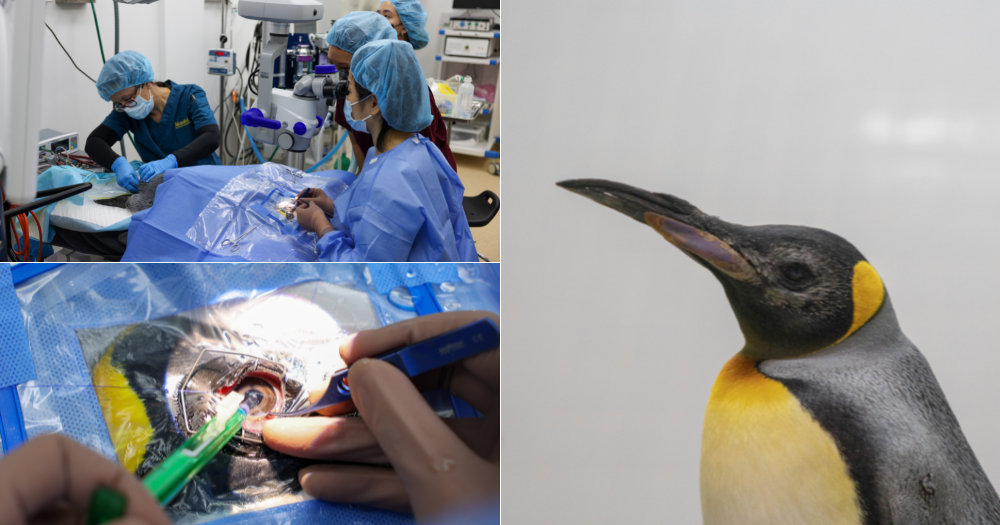
According to a Singapore zoo source, three elderly king penguins were implanted with custom-made eye lenses during cataract removal surgery, in what is thought to be the world’s first procedure to improve their sight.
Vets with the Mandai Wildlife Organization said in a statement Tuesday that the birds were among six senior penguins who underwent cataract surgery two months ago and have since recovered completely.
Three king penguins aged 20 and up, as well as three Humboldt penguins aged 7 to 13, live in Singapore’s Jurong Bird Park. Cataracts, or hazy spots in the eye that impairs vision, are a frequent age-related disorder in both humans and animals.
“We noticed the cloudiness in their (eyes) and moving about like they were having difficulty seeing things in front of them,” said veterinarian Ellen Rasidi, explaining the decision to remove cataracts.
The king penguins received custom-made intraocular lens implants, said Gladys Boo, a veterinary ophthalmologist who took part in the surgeries, which she said marked “a milestone in veterinary medicine.”
According to Boo, the lenses were custom-made in Germany with precise dimensions to match each penguin’s eye, a procedure that took two months.
“As a larger species, the king penguins have eyes large and stable enough to hold the custom lenses in place so we decided to pursue this world-first procedure to further improve their vision above removing the cataract,” she said.
Behind-the-scenes photos showed the delicate technique, which Boo said was especially difficult for penguins because of their unique traits, such as a third eyelid that protects their eyes underwater but tends to close during surgery.
Following surgery, all six penguins were required to stay out of the water, and zookeepers were given eye drops twice daily. King penguins are the second-largest penguin species, located in the Southern Ocean and the sub-Antarctic.
“It is nice to see them more active, indicating their improved vision”: Vet
They are not endangered, but they are protected by wildlife legislation. They can weigh up to 18 kilos (40 pounds), stand up to 1 meter (39 inches), and survive for up to 30 years in captivity. Following the surgery, zookeepers and veterinarians saw “an increase in responsiveness and activity levels” in the penguins.
“It is nice to see them more active, indicating their improved vision,” said Rasidi, the vet. “The king penguins are adapting well to the new lenses as well.”
Singapore’s world-famous Jurong Bird Park hosted over 3,500 birds, including parrots, flamingos, and eagles, until closing its doors in August to prepare for a relocation to new premises, where it would join the city’s zoo, night safari, and a new luxury resort to form an eco-tourism hub.
Throughout the years, the park has been involved in various high-profile rescues and rehabilitation initiatives, including treating a cancer-stricken hornbill with a 3D-printed prosthetic beak.
